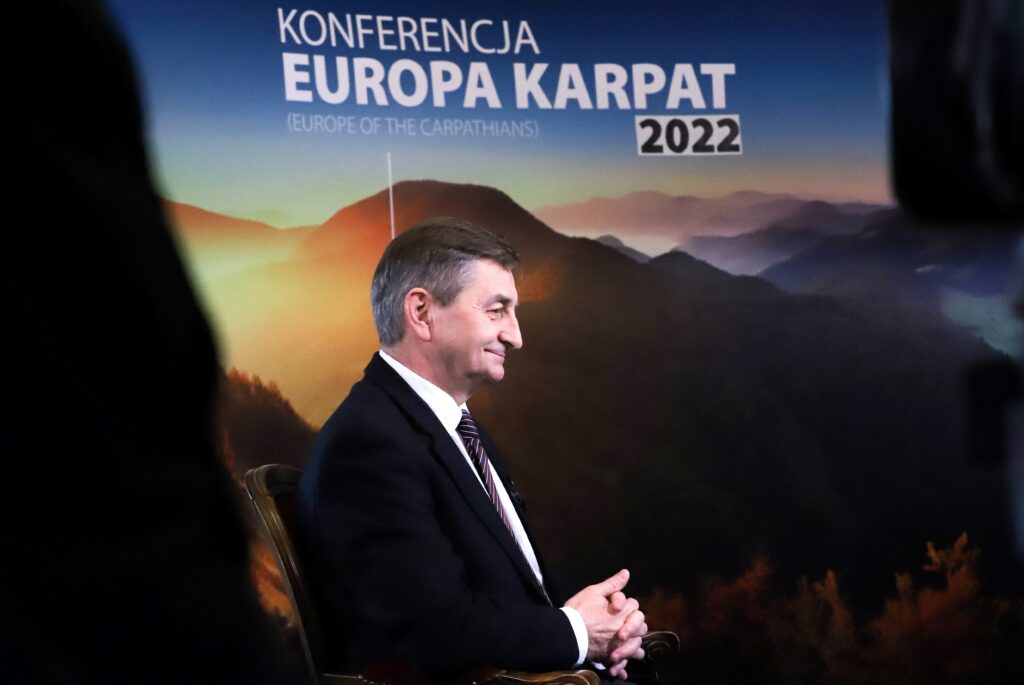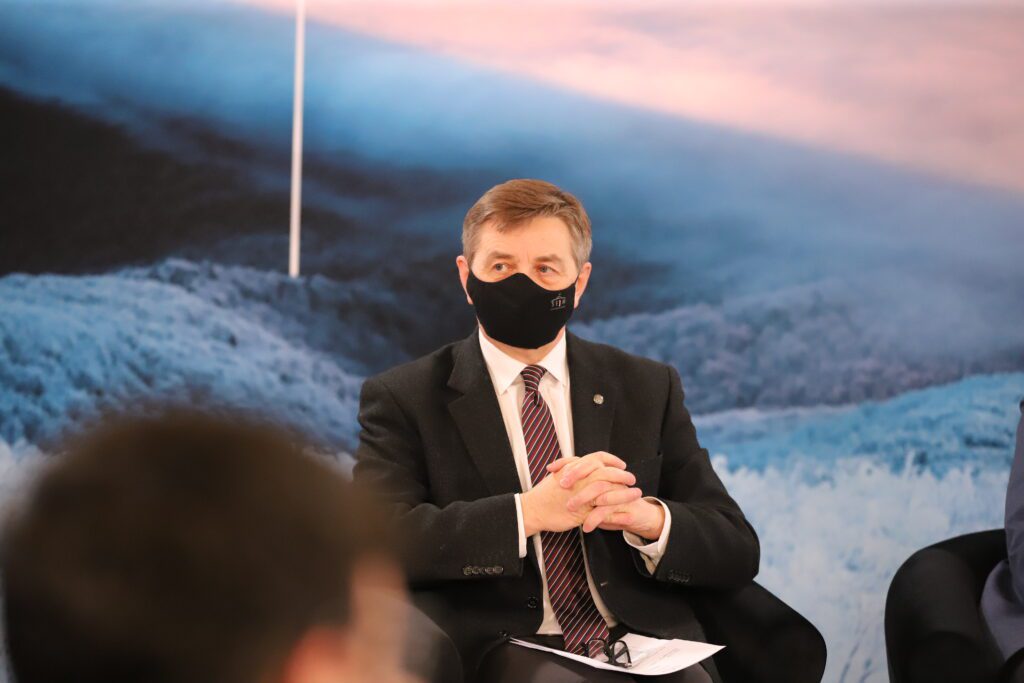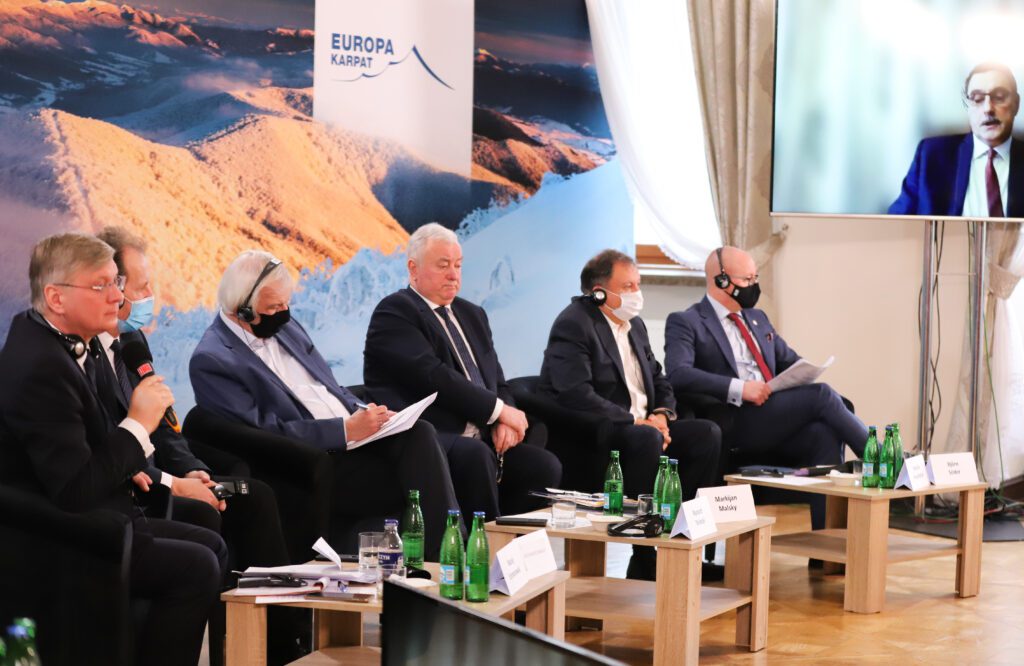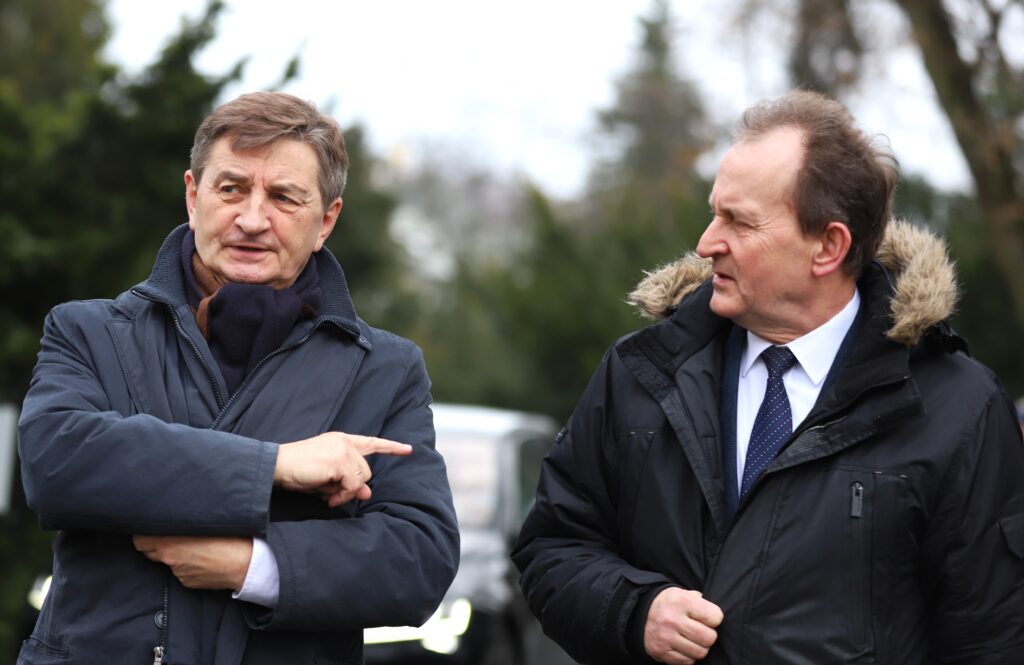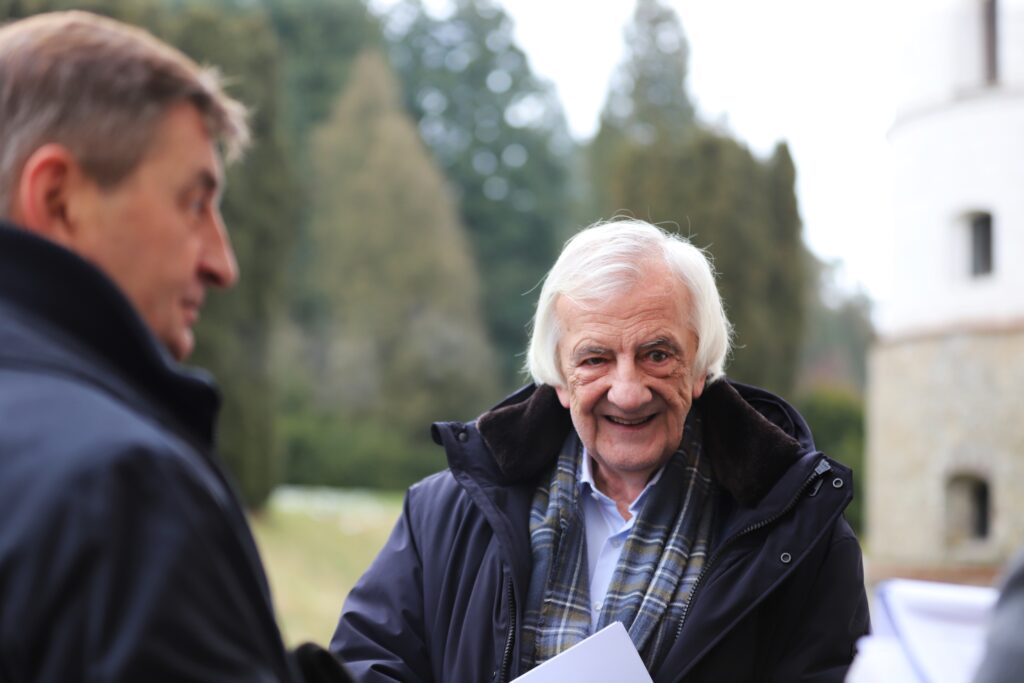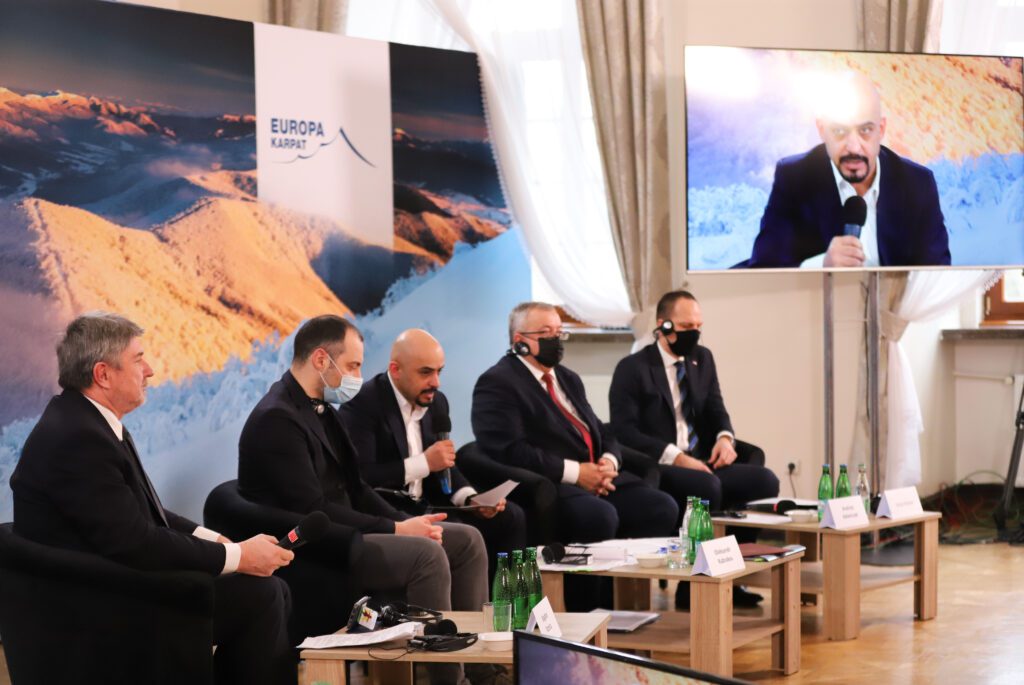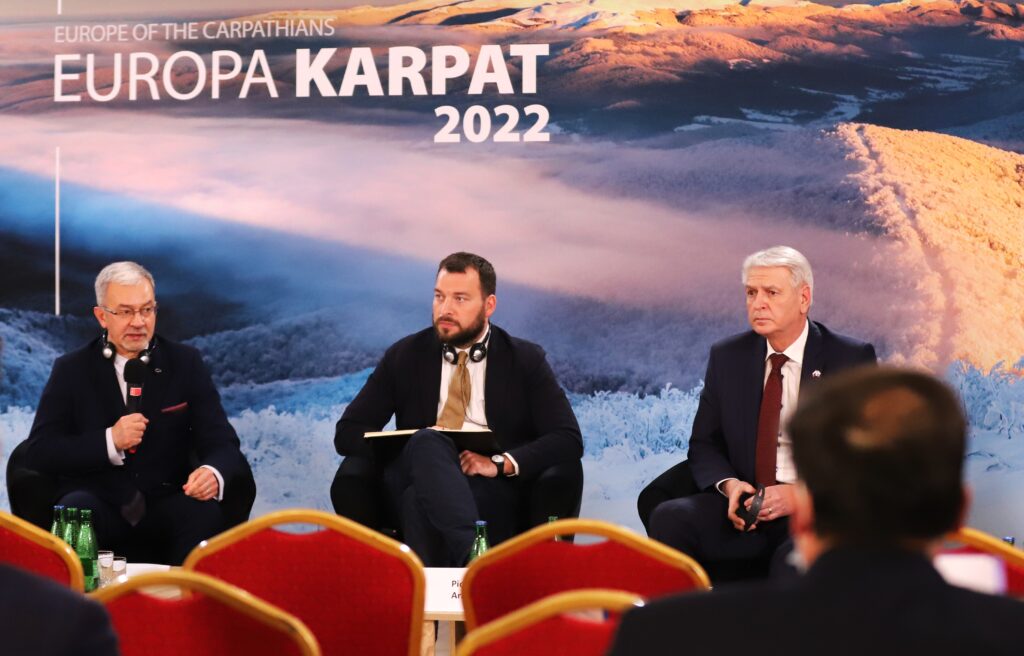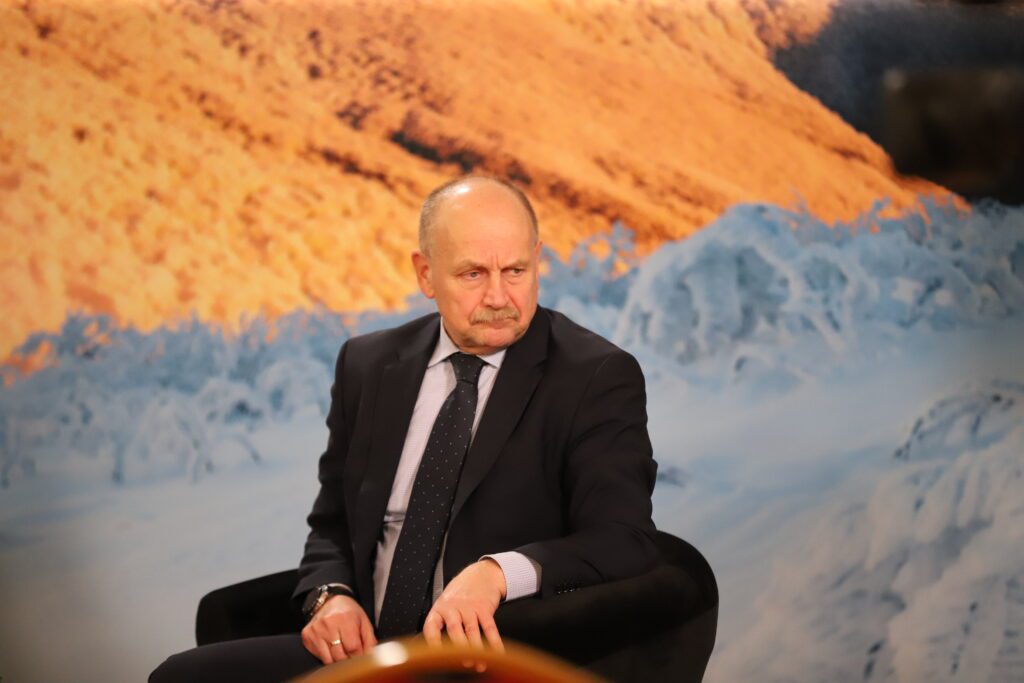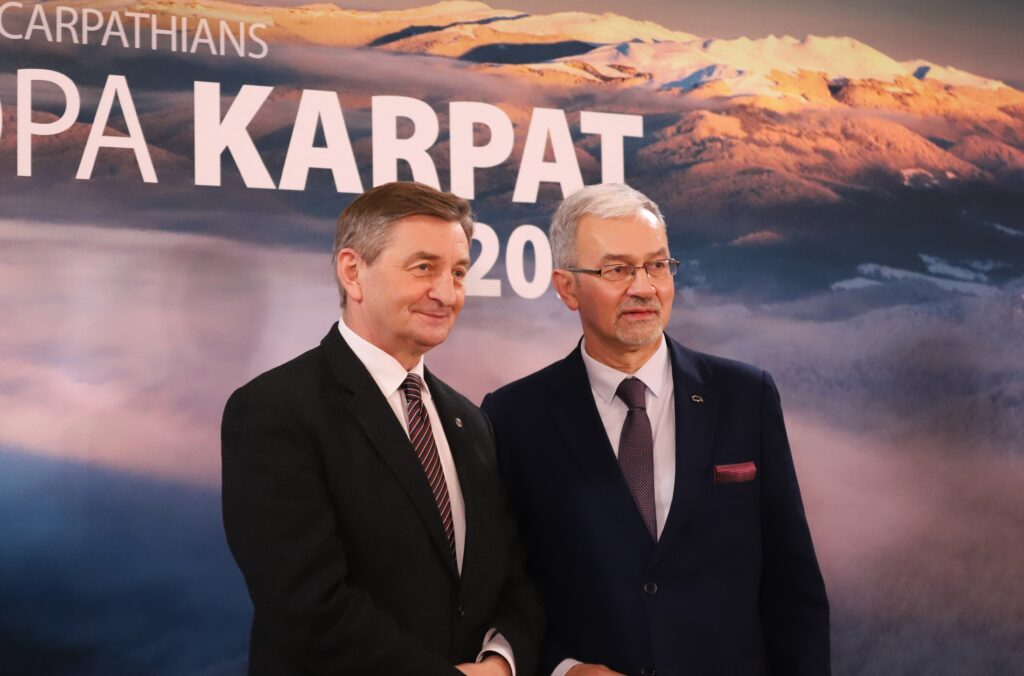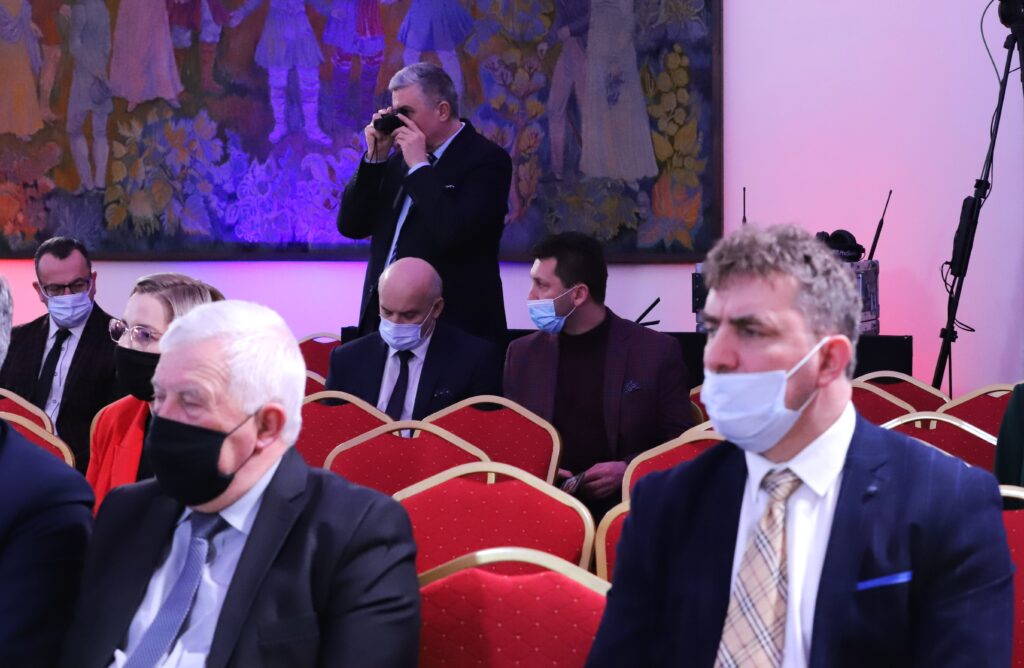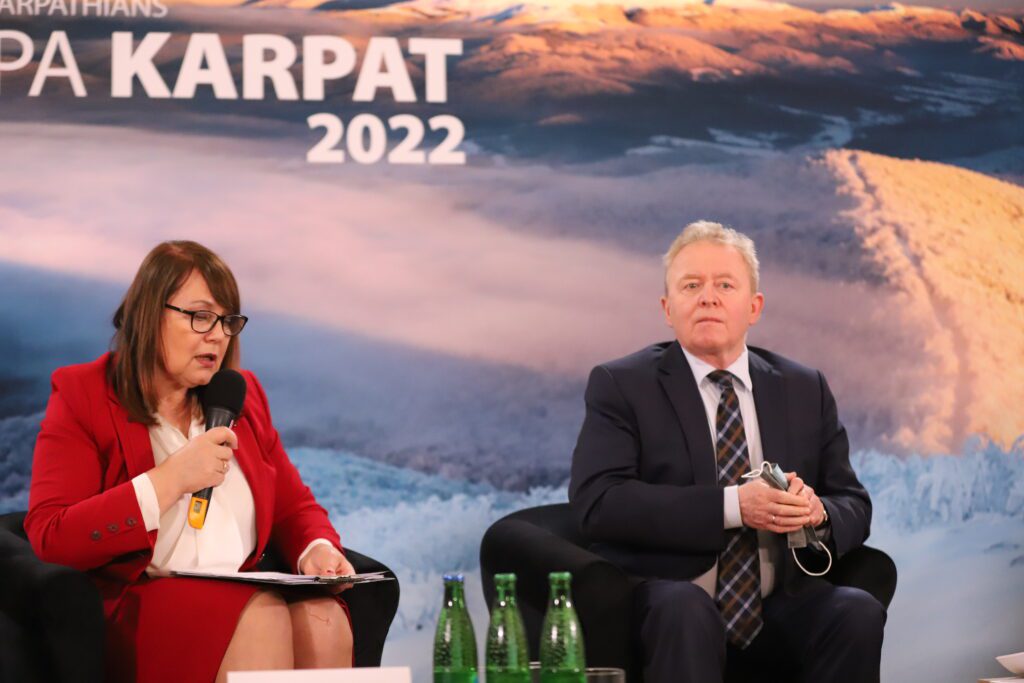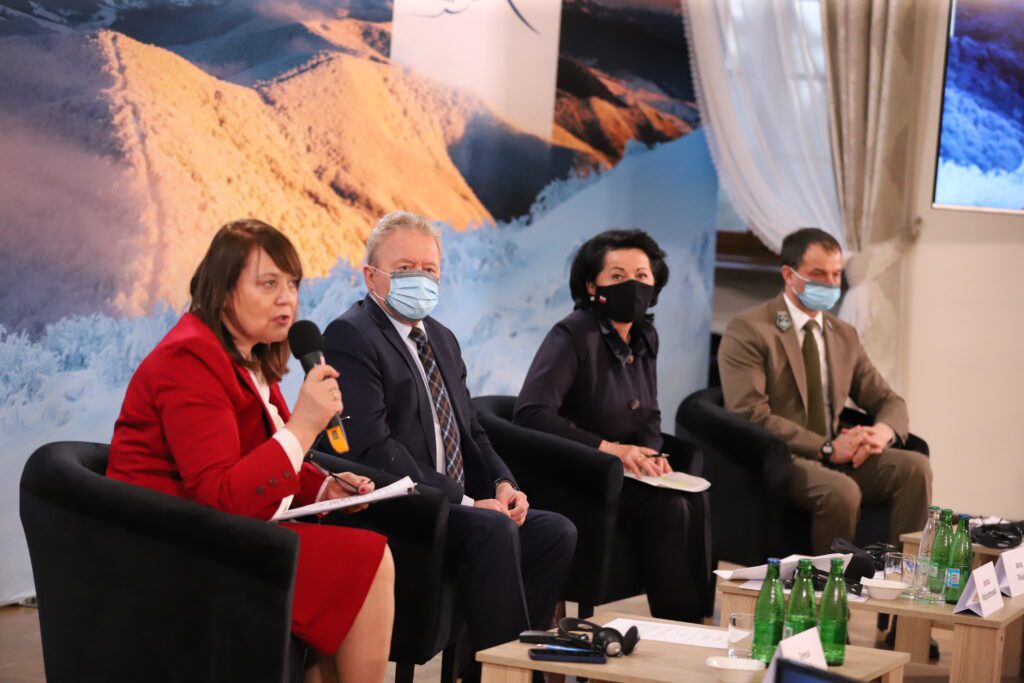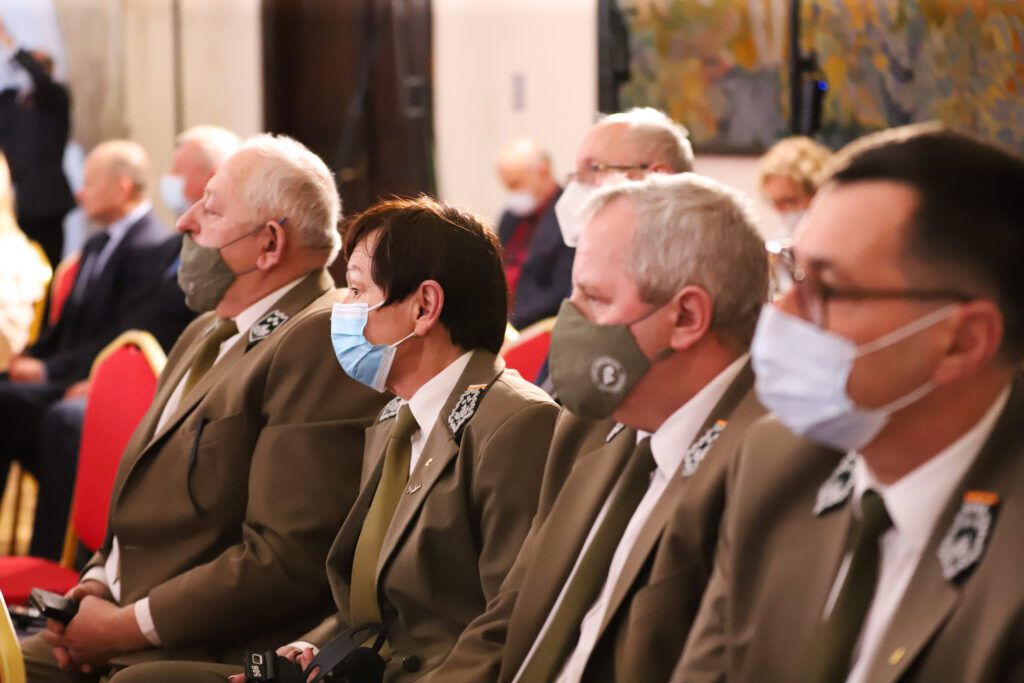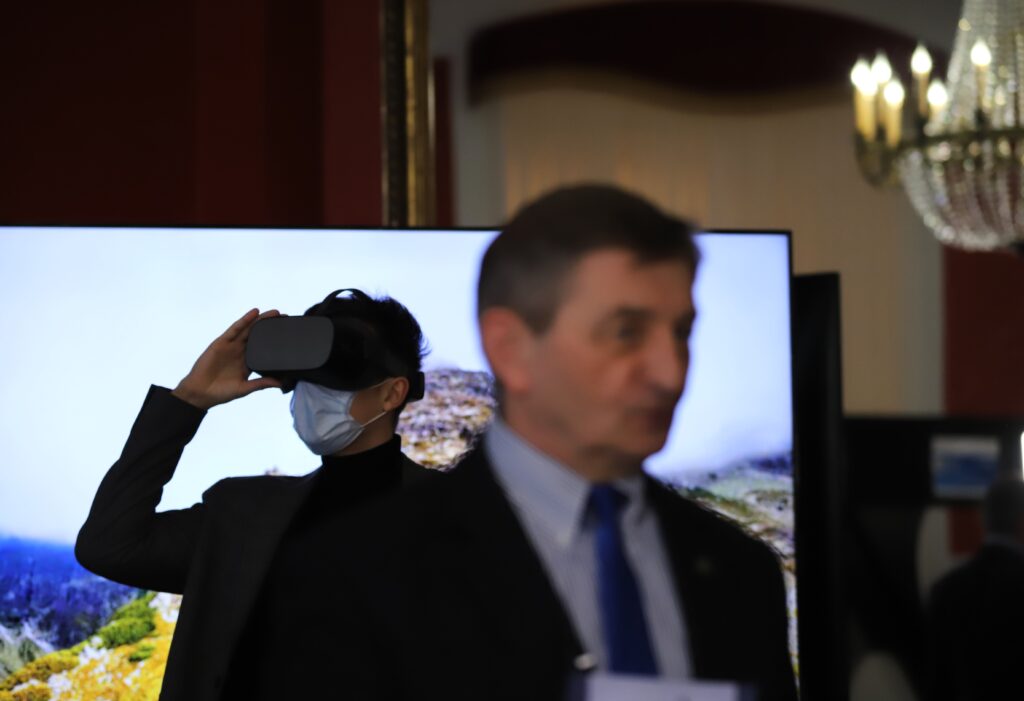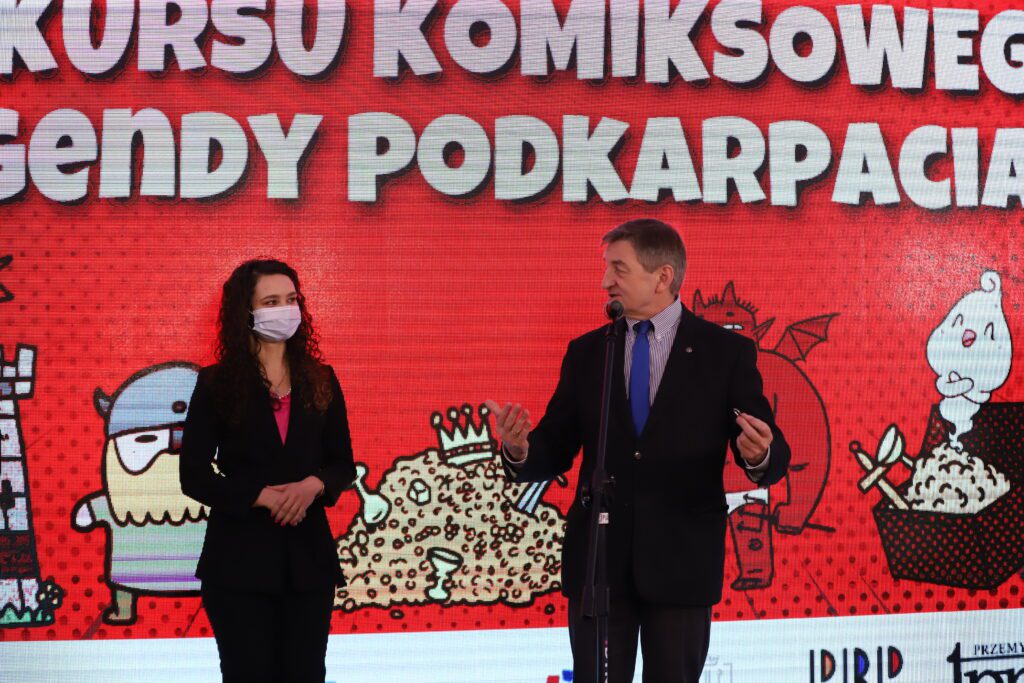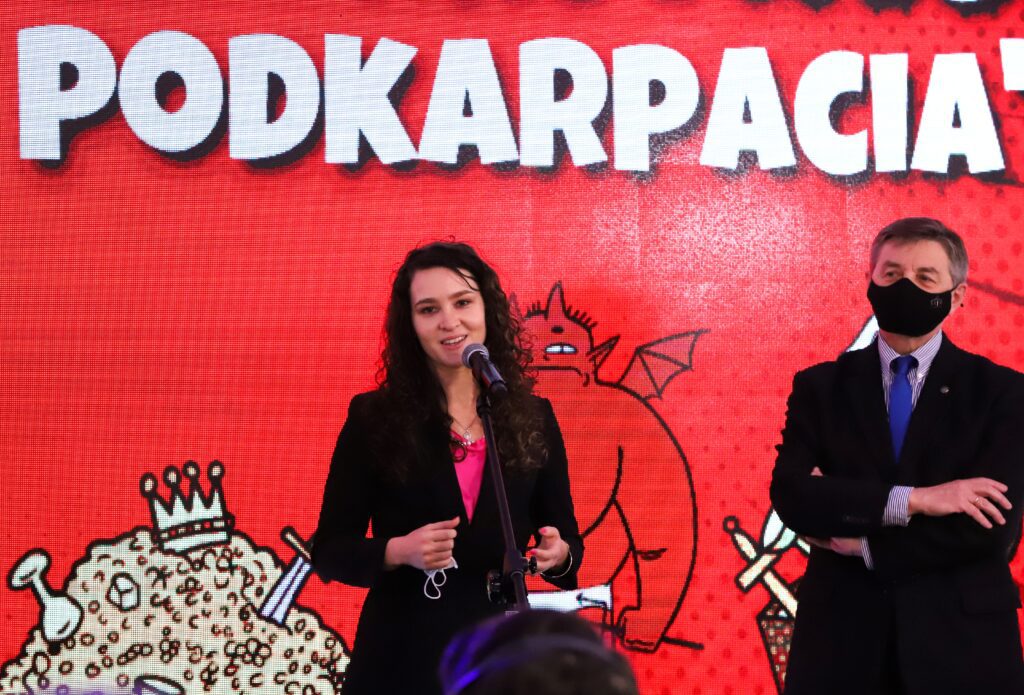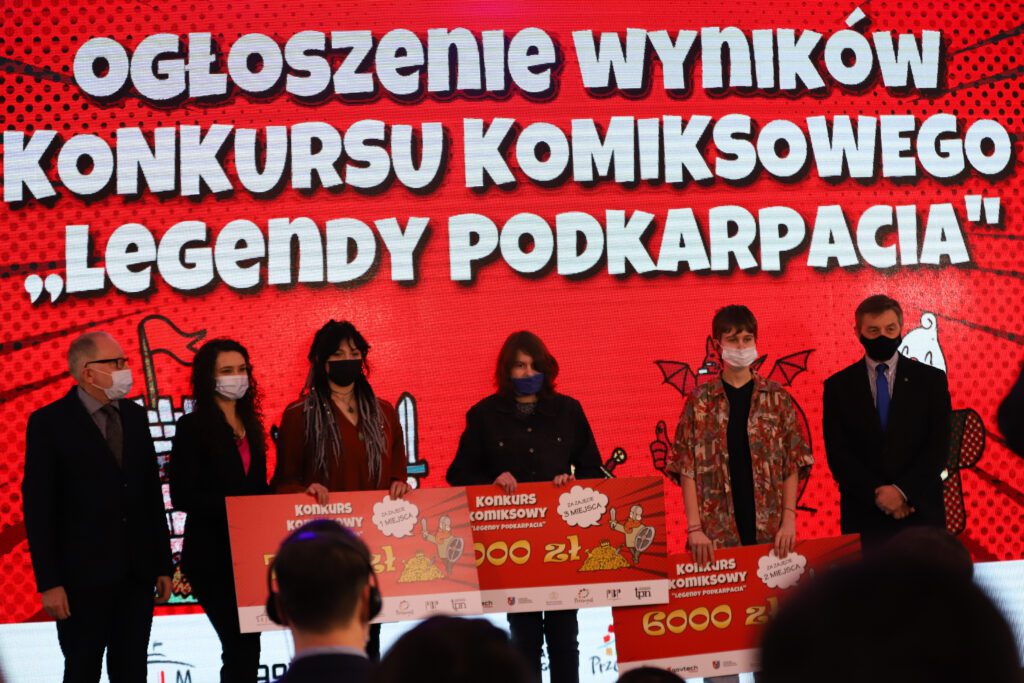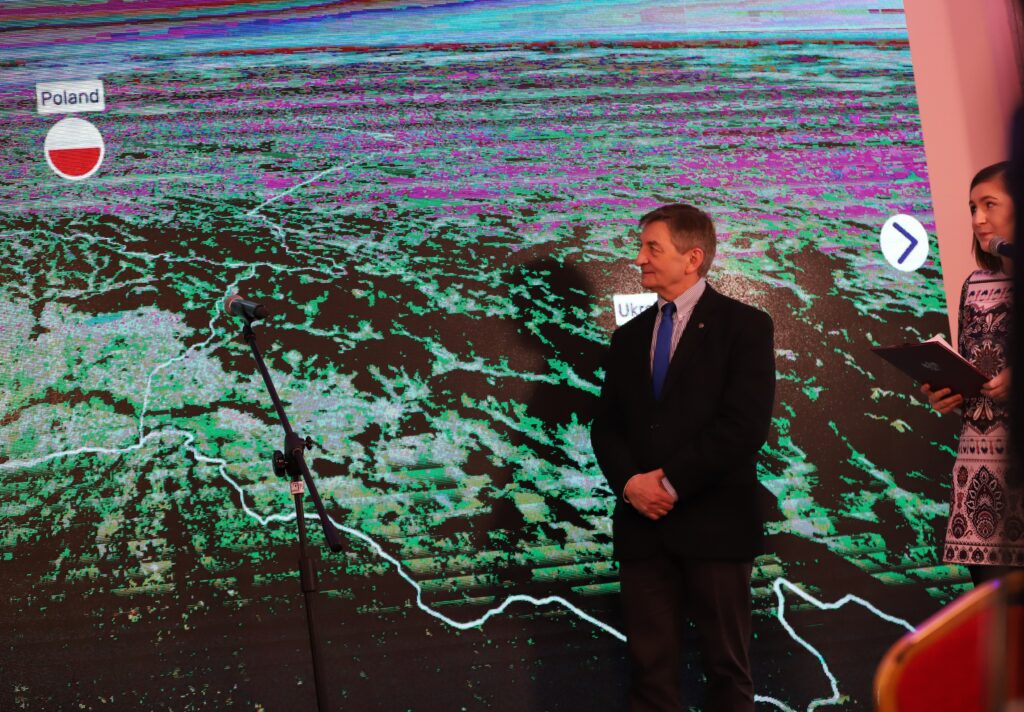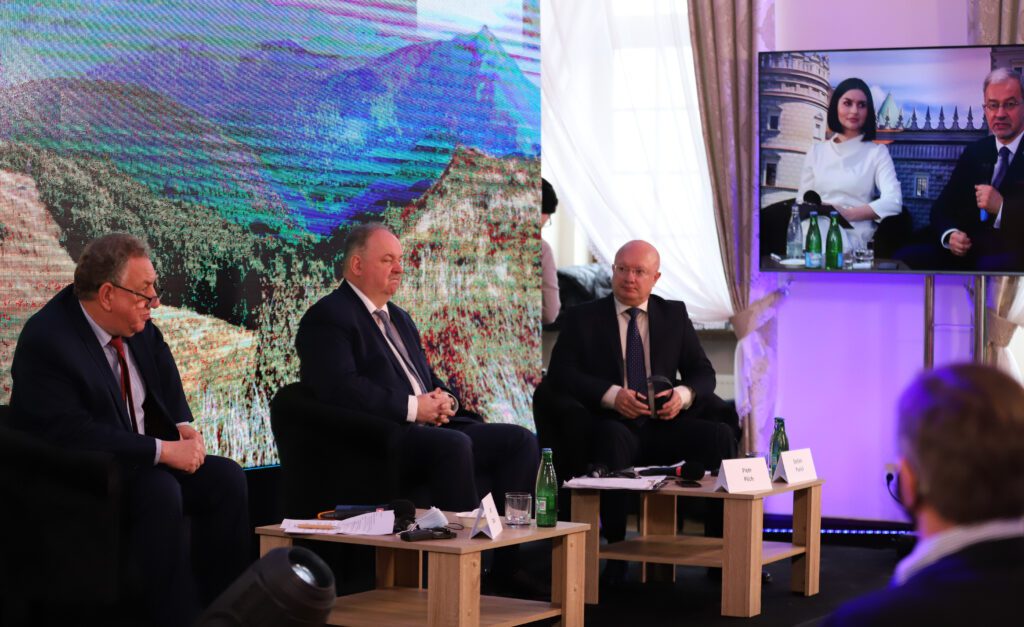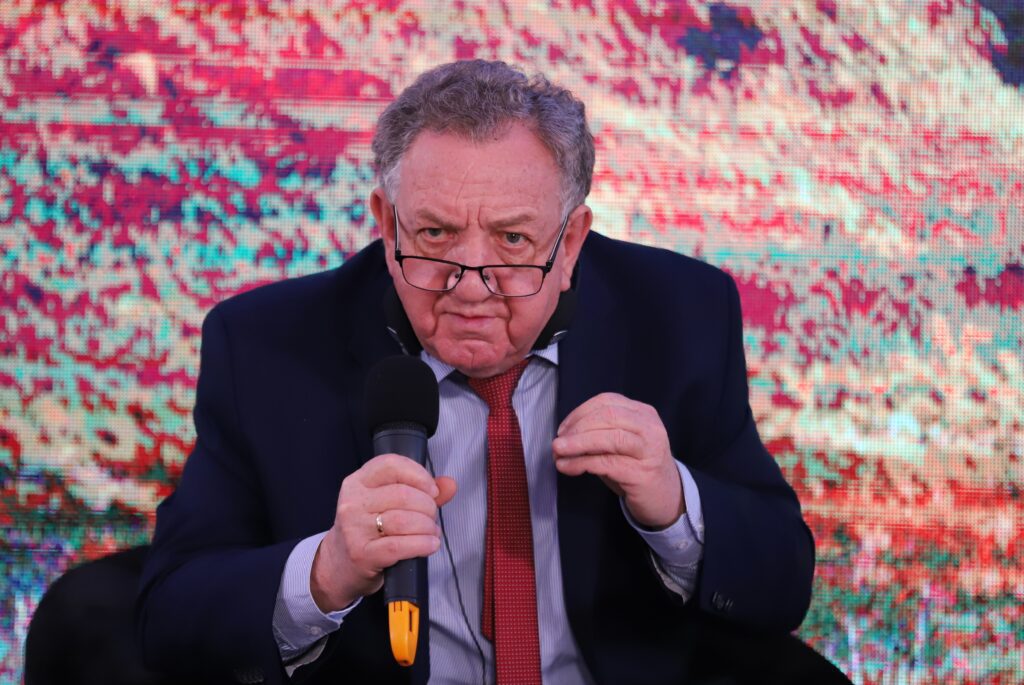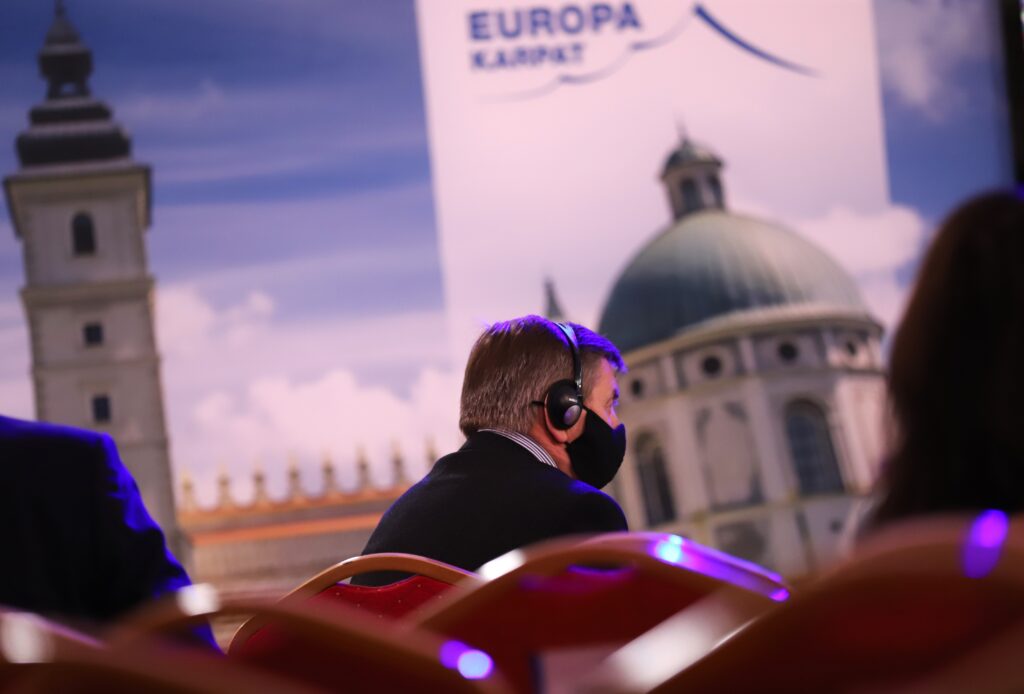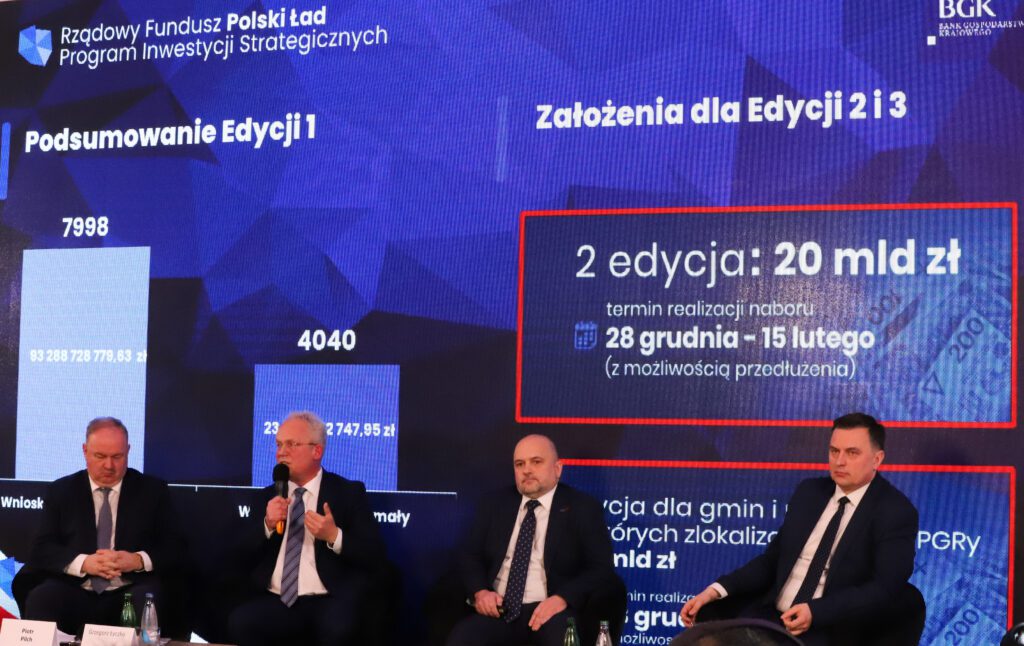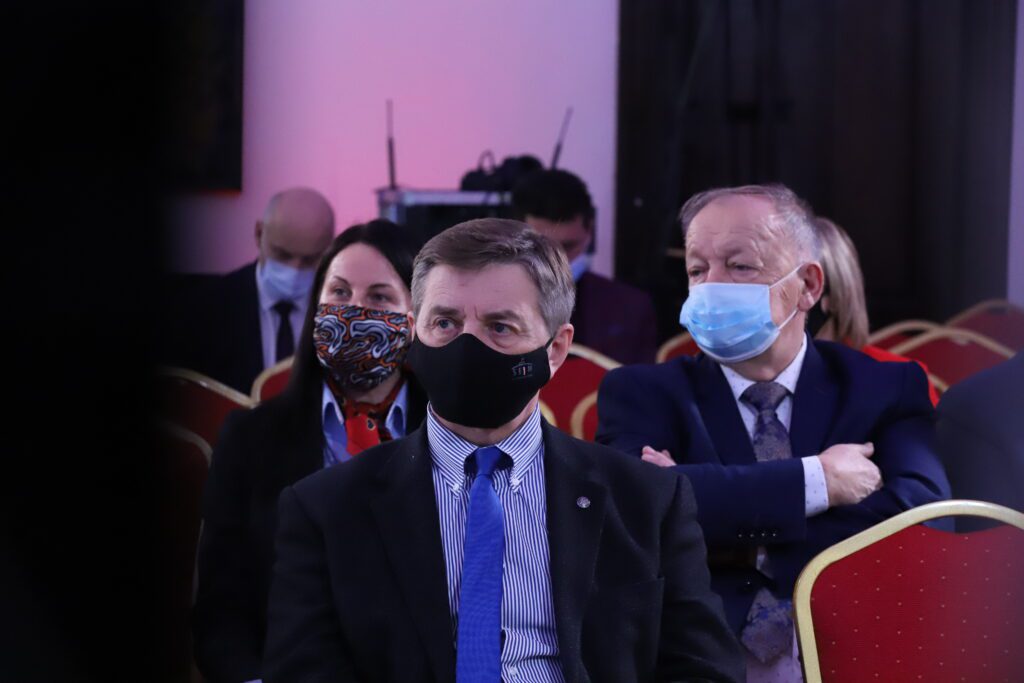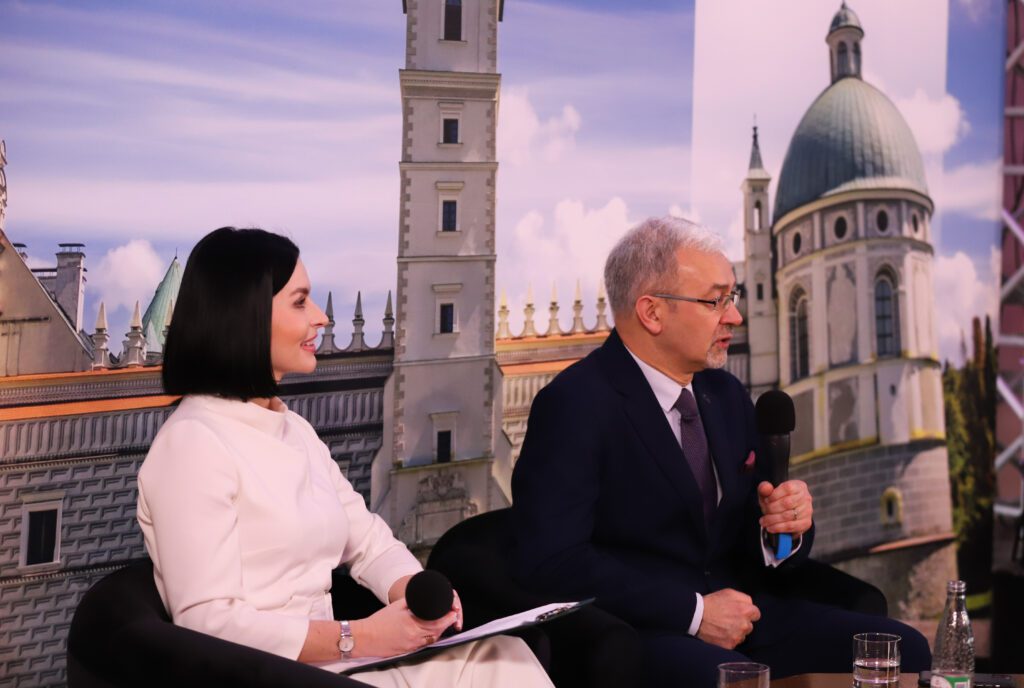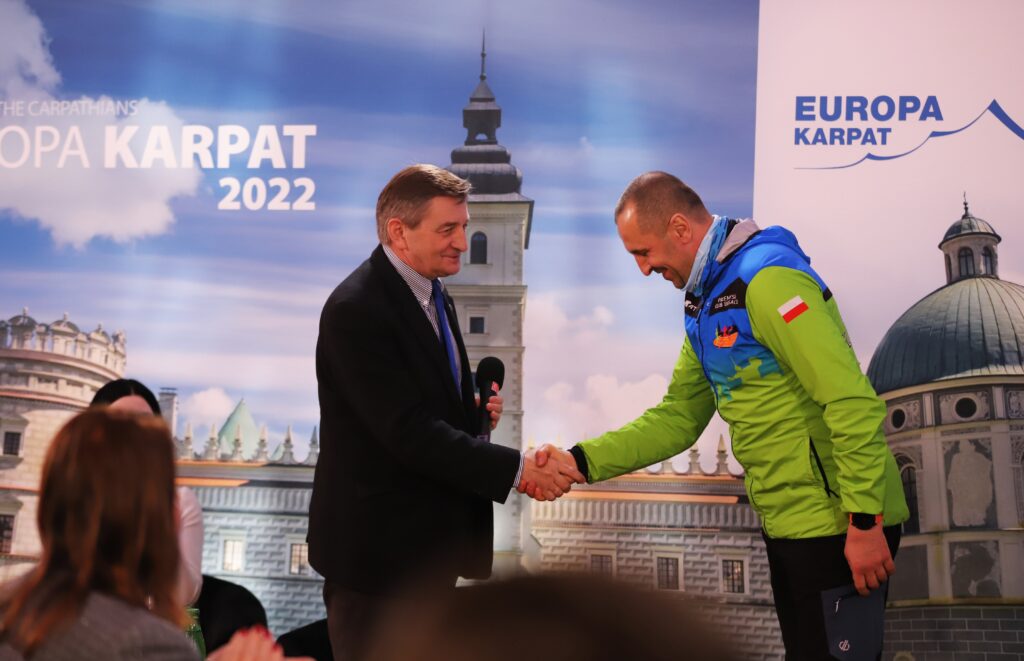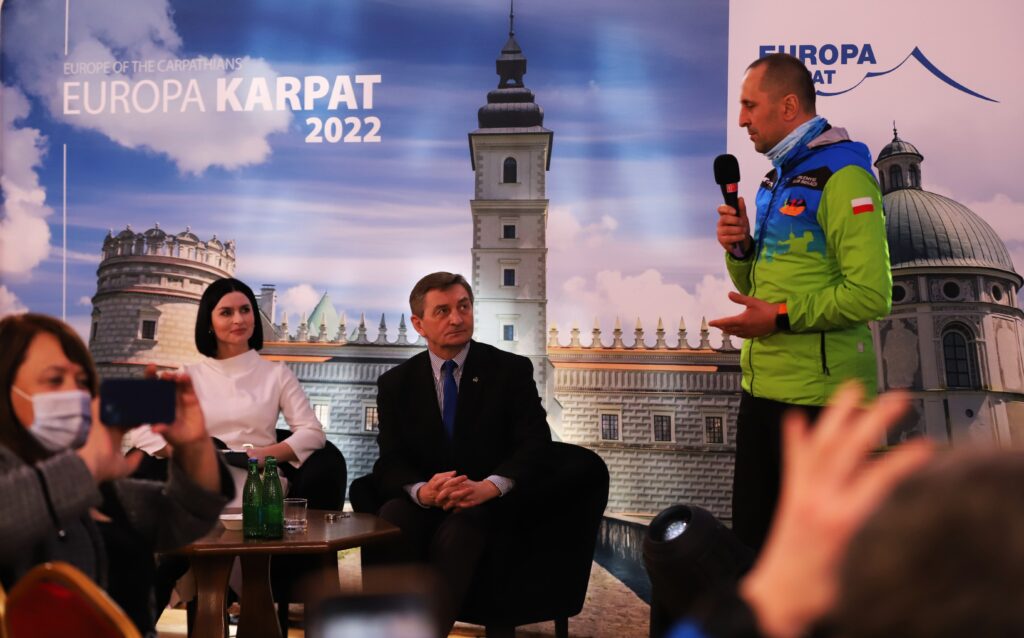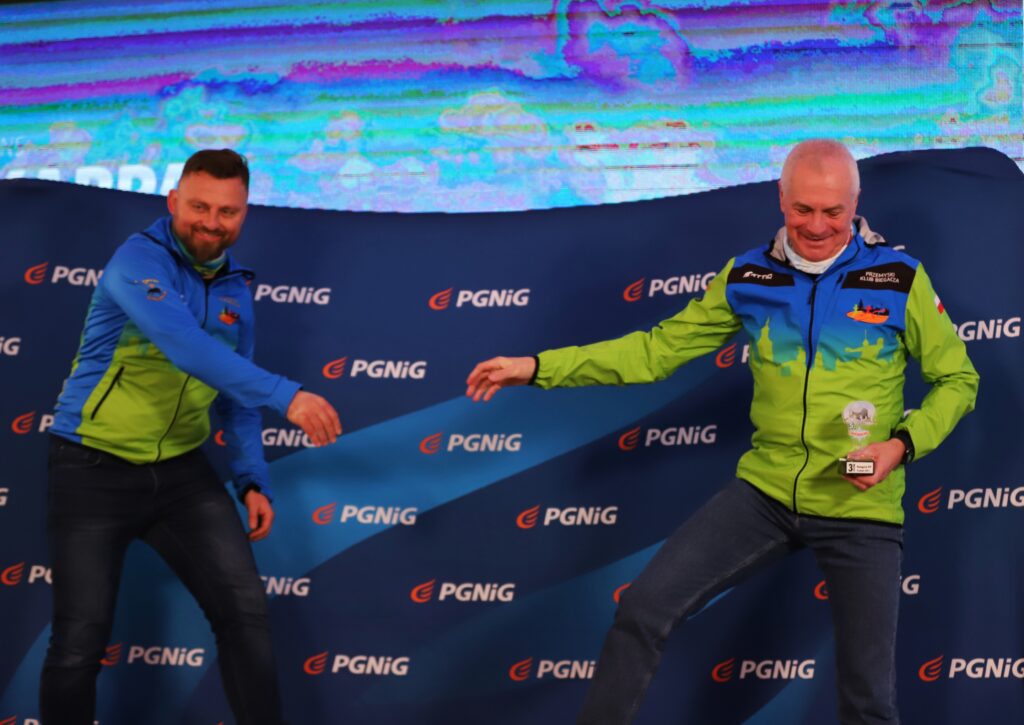On February 5-6, the 32nd edition of the international conference Europe of the Carpathians was held in Krasiczyn (Podkarpackie Voivodeship). Participants included members of parliament, local government and academics from Poland, Hungary, Slovakia, the Czech Republic, Lithuania, Latvia, Moldova, Ukraine, Georgia and Romania. Conference participants discussed, among other topics, the importance of parliamentary diplomacy for European security, the Green Deal, scientific cooperation, and economic recovery of the Carpathian region after the crisis caused by the coronavirus pandemic. The conference was organized by the Chancellery of the Sejm. Due to the edpidemic situation the meeting was conducted in the hybrid formula.
The conference was opened by speeches from Deputy Speaker of the Sejm Ryszard Terlecki, Chairman of the Foreign Affairs Committee Marek Kuchcinski and Minister of Infrastructure Andrzej Adamczyk.
- During these 32 scenes of the Carpathian Europe many ideas and initiatives were developed, but most of all people from all over Central Europe - politicians, businessmen, scientists, local government officials, people of culture - said Deputy Speaker Terlecki during his speech in the castle in Krasiczyn. As he noted, in addition to these meetings there is "an infrastructure of friendship, cooperation, which is extremely valuable in the region". - I would like to draw attention to the parliamentary diplomacy. It is particularly important today. I look at our friends from Ukraine, who are in such a difficult and dangerous moment. During a conversation with the deputy chairman of the Verkhovna Rada of Ukraine I stated that if something happens, all of us from Central Europe are ready to go to Kiev to show the world that Ukraine is not alone and we will support Ukraine in this difficult period of tension," emphasized Terlecki.
In turn Marek Kuchciński, former Marshal of the Sejm and initiator of the Carpathian Europe Conference, in his opening speech informed about establishing the International Club of Carpathian Europe which is to serve the purpose of defining needs, implementing optimal solutions and creating effective mechanism of implementing common initiatives. - We want to create these clubs and support their creation in various parts of our continent. The idea is one: cooperation and taking advantage of the opportunities and care of our cultural and natural heritage, very diverse, which develops thanks to people, us, our ancestors and our descendants, to whom we want to leave the best possible meaning of this part of Europe - said the chairman of the Committee on Foreign Affairs about the initiative.
- This is the 11th time I have had the opportunity to participate in this project. It is extremely important in the social and economic sphere, but in particular it changes our consciousness. We meet to change our reality. And it is indeed changing," said Infrastructure Minister Andrzej Adamczyk. - Anyone who drives along Via Carpatia between Lublin and Rzeszow today, can see that this debate makes sense. We are in the year when we will sign all contracts for Via Carpatia to the border with Slovakia. This year we are also finalizing all procedural efforts of this road from Lublin to Białystok. We also include Via Carpatia in the corridor of the European Transport Network. Rail Carpatia, which is a railroad corridor connecting the countries of the Tri-City, the Carpathians, is another undertaking - he added.
Parliamentary diplomacy for the security of Europe
The first Saturday panel discussed the importance of parliamentary diplomacy in the context of the continent's security and the role of Polish parliamentary diplomacy in our part of the world. - We live in a time when, in countries with very strong national parliaments, their citizens can be sure that their rights will be respected. This is also a special time of attempts to rewrite history, to change the balance of power in our part of Europe, which usually ends very badly," said Maciej Szymanowski, director of the Wacław Felczak Institute for Polish-Hungarian Cooperation, opening the discussion.
Speaking in the discussion, Deputy Speaker Ryszard Terlecki noted that "we are at an important moment, when a discussion about the future of this organization is taking place in the EU". - Also, countries that want to belong to it should take part in this discussion. If we were able to build strong cooperation in our region, these possibilities would expand. There should be a Central Europe group in the EP. This would be an important step forward, which would also result from our discussions - he emphasized.
In turn, MP Włodzimierz Bernacki reminded that parliamentarians are representatives of the "sovereign of sovereign nations". They are also representatives of bodies that last. - Unfortunately, our world has been affected by a crisis of political elites, the most serious in the history of parliamentarism - he lamented.
The chairman of the EU Affairs Committee of the Hungarian National Assembly pointed out that the Carpathian region is a place of incredible potential, which is not used properly. - When I look at the development of the security situation, it seems to me that the last decade is a sequence of successive crises. 2008 economic crisis, then migration crisis. In most cases, the EU was not able to act in advance, it acted only reactively. We have growing security challenges. We see how Russia is threatening Ukraine, how these actions also affect the Carpathian region. The Visegrad countries are under the direct influence of the threats that we see in the east - assessed Richard Hörcsik.
Mykola Kniazhytski, representing the Verkhovna Rada of Ukraine, thanking for the support of the Sejm and the Senate of the Republic of Poland, which Ukraine received, stated that he would do everything to make the Carpathian Club work effectively. - Ukraine cannot be a buffer zone. If Ukraine is under Russian influence, the next aggression will be against the Baltic States and Poland. We have sad experiences and we must realize this - he warned. - Unity and reconciliation of the Carpathian countries is extremely important. Readiness that in case of Russian aggression, which is very real, the countries of the Carpathian region will be a place where people who have suffered from aggression will want to take refuge. I ask the representatives of all parliaments to support parliamentary democracy," said the co-chairman of the Parliamentary Group for Interparliamentary Contacts with Poland.
- It is extremely important for us to cooperate regionally in the EP as well. Sometimes our factions are so tightly knit that it is difficult to find a format for discussion. We should create the possibility of permanent contact beyond the factional divisions. I remember President Lech Kaczyński's speech in Tibilisi in 2008. I remember the reactions to this speech in the West, when people said that it was some kind of political fantasy, that it was exaggerated. Today, these words have a completely different meaning. Parliamentary diplomacy is important for several reasons. Foreign policy has changed its character; it is not just a policy between states, ministers and presidents. It also takes place on a social, parliamentary level. At the same time, the processes of European integration have meant that our European policy is not only a foreign policy, but also partly an internal one, for example in the context of infrastructure. We should reform the EU to strengthen national parliaments so that the EU is rooted in our democracies at the level of nation states - argued Zdzisław Krasnodębski, MEP.
From the Baltic Sea to the Black and Aegean Seas via the Carpathians? New connections within TEN-T network as an opportunity for the region
The second panel discussed, among others, the possibilities of extending the communication chains. - The European Commission has proposed a new communication route, which is part of Via Carpatia. This is the result of efforts and endeavors made since the beginning of 2016. Thank you for the commitment of the countries of the region. Thanks to this, we can count on the fact that the ports of the Baltic Sea will be connected by the Baltic-Black Sea-Aegean corridor with southern Europe. This is already a concrete result of our work. We are, the Trilateral countries, ambitious nations. This is not the end. Last year, in Sofia, at the summit of the Tri-Portuguese countries, accompanying the President Andrzej Duda, I appealed for the creation of Rail Carpatia corridor, because it is absolutely necessary for the Tri-Portuguese countries - said the Minister of Infrastructure, Andrzej Adamczyk.
Deputy Minister of Infrastructure Rafał Weber spoke about the realization of Via Carpatia. - Of the 715 km of Via Carpatia running through Polish territory from the border with Lithuania to the border with Slovakia almost 30 percent is currently available. We have slightly more than 50 percent of this communication route in implementation, and 20 percent in the preparatory stage, which will be consummated this year in the form of implementation agreements - he described.
- Each new corridor and possible branches within the framework of TEN-T will allow us to increase the value of this network and contribute to the common European transport network. It is very important to assess new proposals carefully. The development of transport links should not concentrate only on the development of transport infrastructure. We should remember that a new chain of logistic connections is being created between the Black Sea, the Baltic Sea, the Adriatic Sea and the Aegean Sea. All countries in the region can benefit from the creation of integrated transport connections - noted Latvian Transport Minister Tâlis Linkaits.
- The Czech Republic takes over the presidency of the EU Council in July and in the field of transport we will be finalising the update of the TEN-T network," said Jan Sechter, the Czech Deputy Minister of Transport. - There is also a need for talks with Ukraine on connections to the TEN-T network, so that harmonization of plans would be a link in the strategic dimension. The Eastern Partnership should be translated into concrete infrastructural programmes - assessed the Czech politician.
The moderator in this part of the session was Bogdan Rzonca, MEP.
Green Deal in Carpathian Europe - organic farming as an opportunity for small and medium-sized farms, carbon farming, Biodiversity Strategy 2030, Forestry Strategy
Janusz Wojciechowski, European Commissioner for Agriculture, was the first to speak on this point. Its agricultural part is a reaction to the processes of recent years, industrialization, intensification of agricultural production, which have greatly changed European agriculture. The idea is to make agriculture sustainable and to give opportunity to as many farmers as possible. And this is the phenomenon of Podkarpacie, the experience of this region is very important. Although farms here are relatively small, their production results are very good, higher than in regions with better land. There is also the highest level of mineral fertilizer consumption. It is this organic farming that is a great opportunity, especially for mountainous regions. It is an excellent proposition for this type of agriculture, which stands little chance against the mass, industrial agriculture we see in Europe. With the help of European funds and well targeted support, these regions can benefit from the transformation - said Janusz Wojciechowski.
The actions of the Polish government were presented by Anna Gębicka, Secretary of State in the Ministry of Agriculture and Rural Development. - Changes in such a key area inevitably cause a lot of concern. Therefore, already at the stage of preparing the national strategic plan we focused on very broad consultations with farmers, the agri-food sector, trade organisations, farmers' trade unions. When organising these consultations, we focused on modern technologies. We received many questions, comments, which shows how important these changes are. I hope that fears related to the Green Deal will gradually be dispelled. The component of transfer of knowledge, application of modern solutions in agriculture is very important - she emphasized.
Anna Paluch, Vice-Chair of the Committee on the Environment, Natural Resources and Forestry, focused on the Biodiversity Strategy. - It lacks financial specifics and terminological consistency. If we do not make the terminology and technical regulations coherent, it will not be possible to implement this strategy. All these actions must be interdisciplinary. Natural economy, using the values of nature, is what we should harmoniously develop, in cooperation with our neighbors in the Carpathian Arc - she said.
State Secretary at the Hungarian Ministry of Agriculture Zsolt Feldman referred to the strategies prepared by the European Union. - It is very important to look for answers to the question of how agriculture can be sustained, so that producers who live in the provinces can continue to make a living from their activities. We have assumed that we can harmonize our ambitions of competitiveness and environmental protection. In order to achieve the goals of the Green Deal, we have to make technological developments, implement new farm technologies. This is a cost and we need time to implement new farming techniques. Threats formulated by farmers regarding the Green Deal can be solved only partially through financial support. Support in the form of knowledge base is also necessary - he stressed.
Martin Kováč, State Secretary at the Ministry of Agriculture and Rural Development of the Slovak Republic, said that Slovakia identifies with the view that the Green Deal has the potential to become a fundamental element of the transition to maintain sustainability. - We need to keep in mind the importance of small farms when setting so-called environmental targets, he added.
The discussion was moderated by Teresa Pamuła, Member of the Committee on Agriculture and Rural Development.
Rebuilding the economies of the Carpathian region after the economic crisis
Panel IV was an opportunity to discuss the economic crisis caused by the pandemic, which affected the economies of all the Carpathian countries, and the implementation of programs related to economic recovery.
Waldemar Buda, Secretary of State in the Ministry of Funds and Regional Policy, noted that the Polish state went through a kind of test. - We had a huge challenge, which faced the Polish economy. First of all, the employment parameter was the most important for us. This test has been passed. From 2019 to 2021 we increased the number of people employed. This shows that the instruments we introduced worked. The financial shield, Social Security exemptions or "stoppages" maintained jobs. Both national and European funds were involved. Inflation is an obvious consequence that we face all over Europe. We have minimal unemployment. The goal we would like to achieve is a macro-regional, European, Carpathian strategy. We should follow the EC initiative in terms of preparation, conceptual work on the Carpathian Strategy. For our part, we are undertaking intergovernmental discussions - he assured.
- Practically the whole world is struggling with inflation due to recovering from the pandemic slowdown. It is a global phenomenon, also affecting our region, the Carpathian region. Hence, already in October 2021, the first EU countries began to implement programs aimed at reducing possible losses which could be incurred by those most sensitive to price increases, especially the lowest earners, pensioners. The Polish government did not lag behind and also implemented its own projects in this regard. VAT and excise duty on the most crucial energy resources and services were lowered, and additional solutions were made in the formula of direct support - said Deputy Finance Minister Jan Sarnowski in his speech.
A video message was sent to the conference participants by the Commissioner for Cohesion and Reform Elisa Ferreira. In the message, she mentioned the aid flowing to EU countries after the crisis. She welcomed the fact that both member states and non-EU neighbors are working together to face common challenges and seize opportunities together.
The discussion was moderated by Jerzy Kwieciński, Vice President of the Management Board of Bank Pekao S.A.
Young champions - creators of the future of Central Europe: innovation, creativity, inventions
The first Sunday panel of the conference discussed the potential hidden in young people from Central Europe. Their creativity, energy, courage and visionary spirit. The inspirations coming from other countries, as well as the inspirations that young people in other parts of the world can draw from their peers from Central and Eastern Europe. Young researchers, scientists, and startup founders talked about their passions, interests, beginnings of their professional activity, ongoing projects, perspectives and challenges. Their experiences and thoughts were shared by: Patryk Pijanowski - the founder of Nebucode and TherapyCave (the winning project of the Startup Mine), Michał Styczyński - a PhD student at the Biology Department of the University of Warsaw, Alicja Filiacz - the winner of the first place in the competition for a digital comic book about legends from the Podkarpacie region, Maksymiliam Paczyński - the winner of the international Intel Impact Creators competition, and Maciej Trojnar - a three-time winner of the Geography Olympiad, captain of the Polish team at the National Geographic World Championships.
The moderator for this part of the session was Robert Gönczi, research assistant at the Migration Research Institute in Budapest.
Universities and their social environment
On the second day of the conference, the participants of the 32nd Carpathian Europe Conference also discussed cooperation at the scientific level. They discussed the challenges facing the academic world, the situation of universities and their social responsibility in the era of pandemics. The panelists noted that the pandemic that has taken mankind by surprise in recent years has brought new challenges to universities and the social responsibility of universities has increased manifold. Finding appropriate formats for cooperation with the academic world and the need for joint initiatives of Central European universities were mentioned as necessary actions. The interlocutors shared their experiences with the functioning of universities during pandemics, which not only play an educational role, but also have an impact on the region. They also discussed projects related to historical heritage in the Carpathian region and cooperation within the Collegium Carpathicum. It was agreed that the International Carpathian Club could become a great tool to stimulate new projects and partnerships. The issue of the renovation of the Astronomical and Meteorological Observatory atop Pop Ivan was also raised. In the discussion participated: Stefan Purici, Vice-Rector for International Relations of the Stefan Great University of Suceava; Igor Tsependa, Rector of the Carpathian National University; Jan Malicki, Director of the East European Studies of the University of Warsaw; Oleh Skrynyk, Research Project Manager at the Faculty of Geography and Regional Studies of the University of Warsaw; Oleh Skrynyk, scholarship holder at the Institute of Geography and Spatial Planning of the Polish Academy of Sciences; Piotr Pilch, Deputy Marshal of the Podkarpackie Voivodeship; and Dawid Lasek, from the Carpathian Euroregion Association.
The discussion was moderated by Prof. Jan Draus, representing the College of the Institute of National Remembrance.
Events accompanying the 32nd Europe of the Carpathians included an exhibition on Hungarian aid to Poland in the 1920 war with the Bolsheviks, the announcement of an international competition for "Legends of the Podkarpacie Region," and a preview of the exhibition International Carpathian Painting Triennial - Silver Quadrilateral 2021 under the honorary patronage of President Andrzej Duda.
Moreover, during the 32nd Conference Europe of the Carpathians Vice-Minister of Culture and National Heritage Jarosław Sellin awarded artists and cultural animators. Within the framework of special events the investment opportunities of the Tri-City Fund and the Strategic Investment Program of the Polish Government were also presented. At the end of the conference the Chairman of the Foreign Affairs Committee Marek Kuchciński handed the awards of the cross-country competition Winter Carpathian Five in VIP category.
